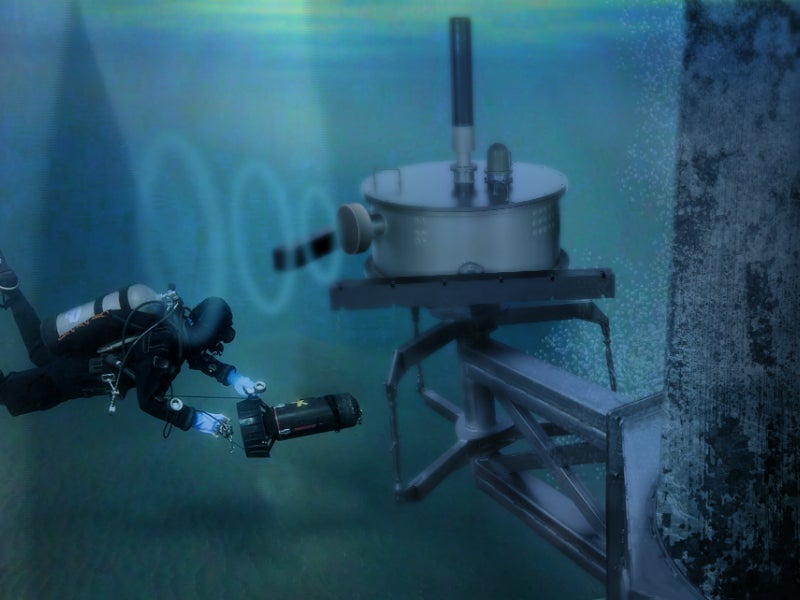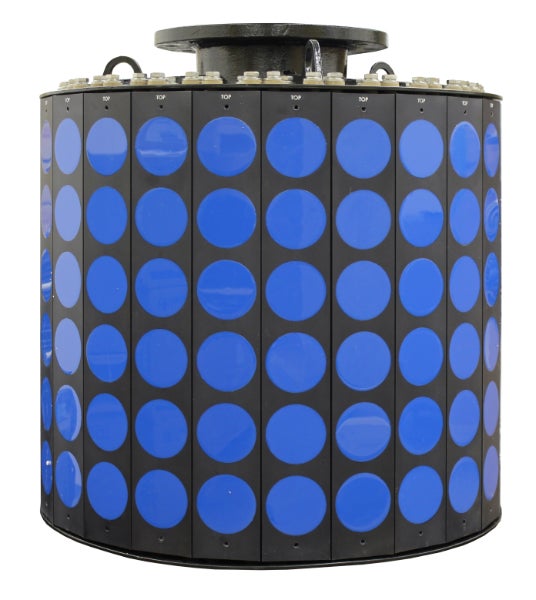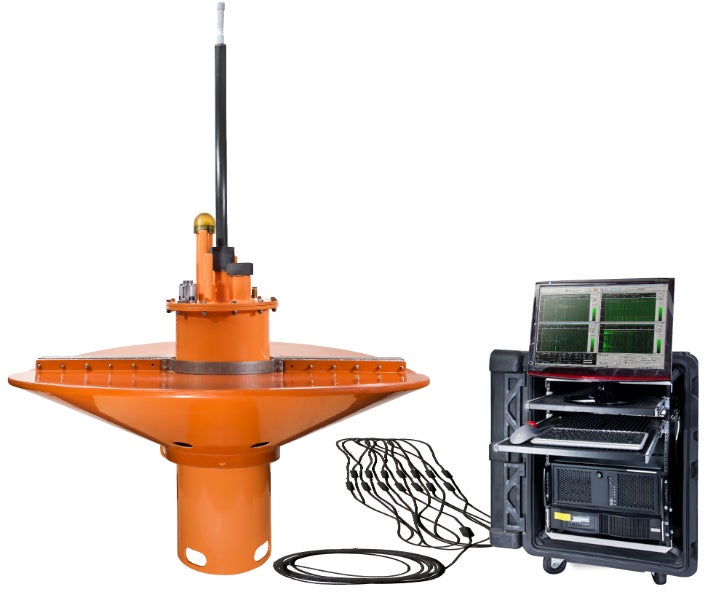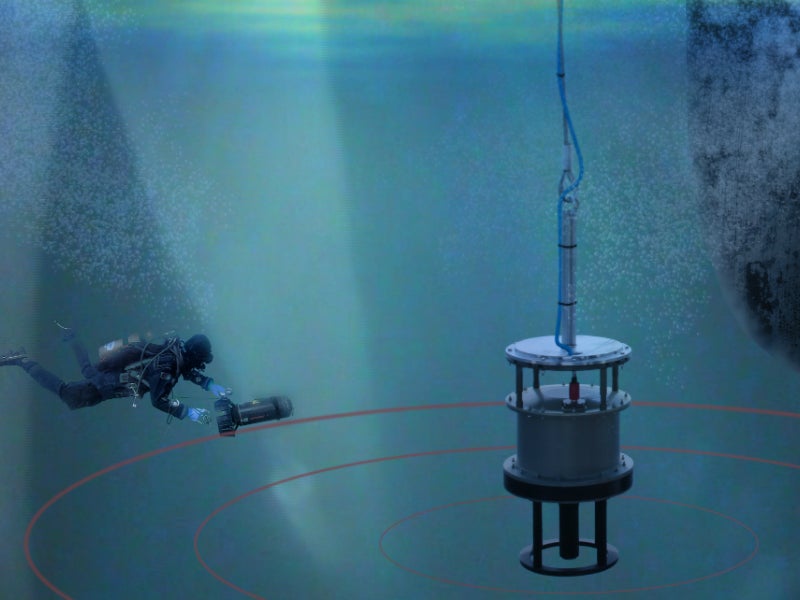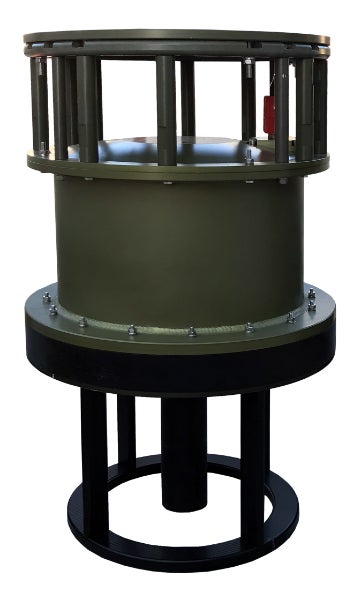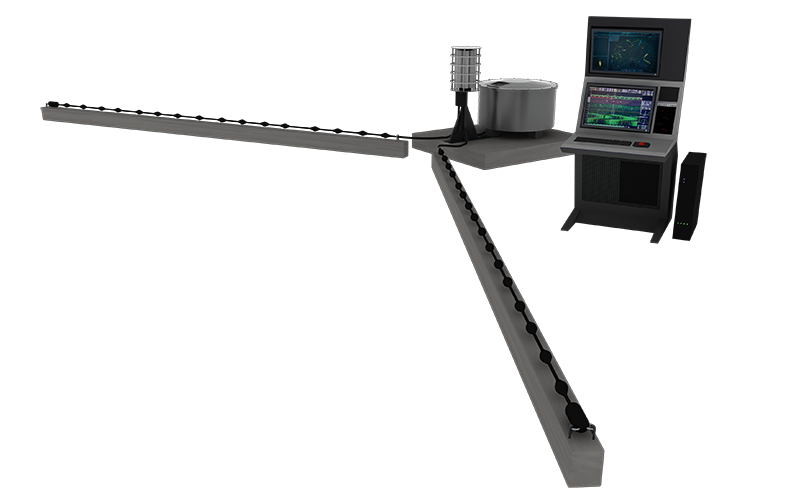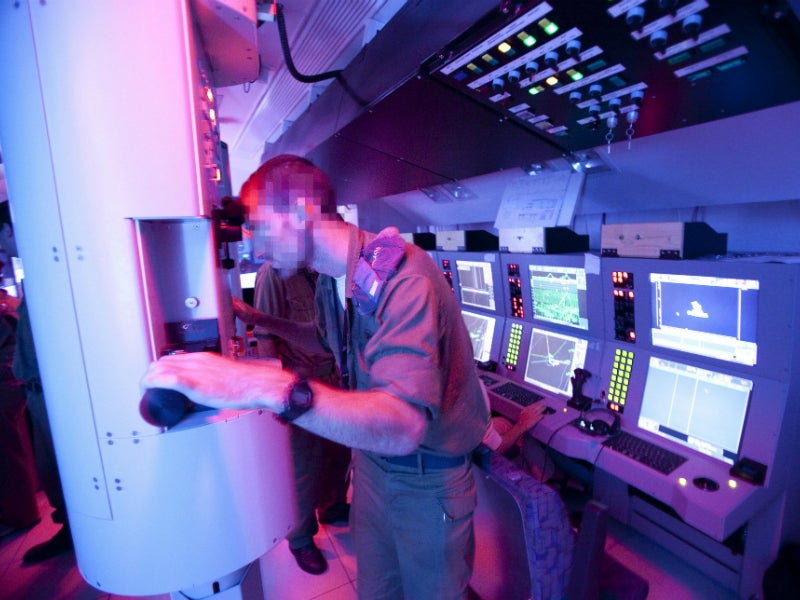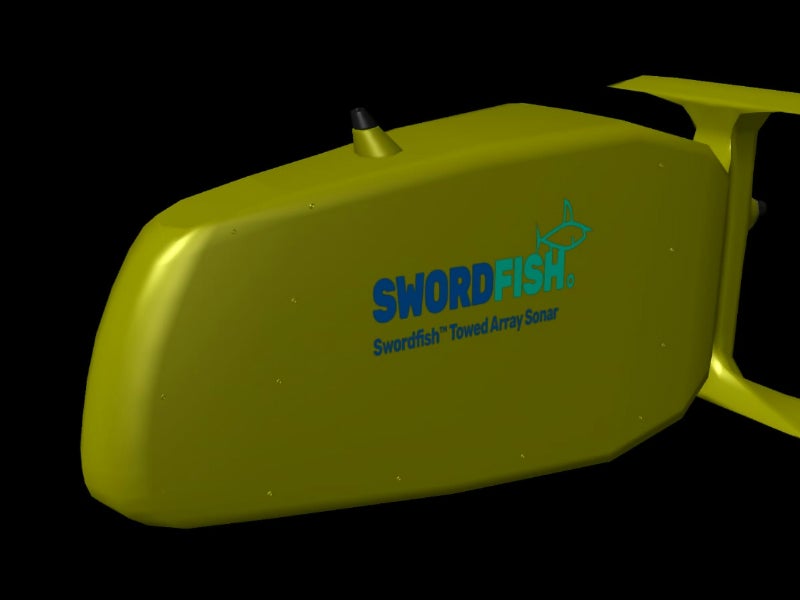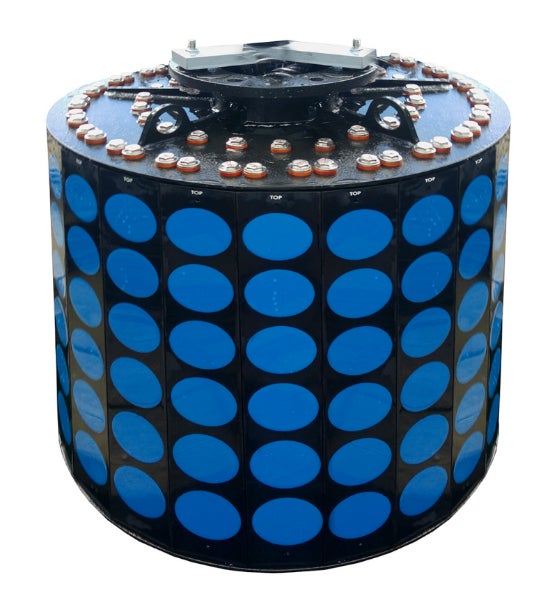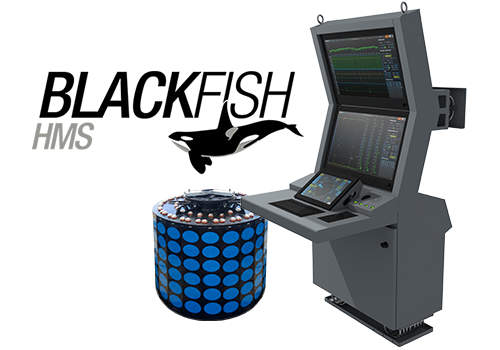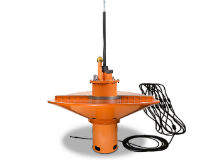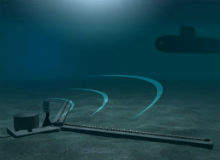For the past two decades, DSIT Solutions has been developing and applying state-of-the-art technology to create advanced sonar systems and C&C applications for defence, commercial, energy and homeland security markets.
The company is a subsidiary of Rafael Advanced Defense Systems Ltd and Acorn Energy (NASDAQ: ACFN).
Hull-mounted sonars for naval applications
DSIT’s Blackfish HMS is an innovative hull-mounted sonar that can be tailored to the exact requirements of navies based on their operational needs and size of vessels.
DSIT’s Blackfish HMS is a medium-frequency hull-mounted sonar (HMS) for littoral and deep water ASW operations. The Blackfish sonar features:
- Highly advanced signal processor module for active and passive detection
- Target search
- Tracking and classification both in active and passive modes
The product includes advanced automatic functions for operator ease and a built-in training simulator (TS), which supports the training of operators on-board.
Diver detection sonars for underwater security
AquaShield™ is a high-performance diver detection sonar (DDS) system, which is used for long-lasting underwater protection in naval bases, docks, oil and gas depots, offshore platforms, underwater pipelines and cables, nuclear energy facilities, and canals.
The AquaShield™ DDS provides long-range recognition for many marine threats, including divers using rebreathing devices, scuba divers, and unmanned underwater vehicles (UUVs).
The AquaShield™ construction is flexible and offers three sector coverage configurations: 120⁰, 240⁰ and 360⁰. All configurations cover the entire relevant water column.
The system supports fully automatic operation and eliminates the need for a well-trained sonar operator. Its advanced signals processing algorithms ensure the anticipated arrangement of very high Probability of Detection (PD) with very low False Alarm Rate (FAR).
The DDS can be used underwater for long periods with little maintenance required. It is particularly strong and can endure the detonation of a typical underwater charge (200g TNT) at a range of five metres.
Portable diver detection sonars for fixed installations
PointShield™ is a portable diver detection sonar (PDDS) system designed for vessel protection and suitable for fixed installations where a limited area needs to be covered.
The PointShield™ is lightweight, compact, and portable, allowing quick deployment and retrieval. It can endure continuous underwater operation, making it ideal for permanent installation.
The PDDS features automatic operation and cutting-edge signal processing algorithms.
The PointShield™ provides omnidirectional (360°) coverage, generating a security range that surrounds the secure object from all sides and covers the entire relevant water column.
Cost-effective portable acoustic range devices
Based on their radiated noise, submarines and surface vessels can be identified by passive sonar systems. DSIT’s portable acoustic range (PAR) offers a portable, straightforward and profitable way to precisely measure submarines and surface ship noise emission in real-time.
The PAR allows operators to monitor and manage noise and silence their ships and submarines.
The system continuously tracks the measured vessel and transmits the data to a measurement ship, enabling radiated noise processing, analysis and display. The device comprises a comprehensive platform database for the management of measurement results and provides playback and post-analysis capabilities.
The PAR’s compact design and flexibility enables rapid deployment and retrieval of the system, while it saves maintenance costs involved in operating a fixed acoustic range. It also allows its users to obtain highly accurate and reliable measurements of their fleet.
Static active sonar coastal surveillance systems
SeaShield ™ is DSIT’s long-range undersea coastal surveillance system. It detects underwater threats such as submarines, mini submarines, and other submersibles in large coastal areas.
The system should be installed along critical coastlines, maritime borders and at harbour entrances to allow governments to guard their territorial waters as well as their exclusive economic zone (EEZ).
The active sonar delivers increased security for the navy’s own ships and submarines by making it very challenging for underwater vessels to enter the secure area. The navy is capable of directing its special anti-submarine warfare (ASW) responders to the precise position of the unidentified submarine.
The SeaShield™ consists of an active transmit sonar array and large passive receive arrays that are linked to an electrical component. The SeaShield™ features automatic detection, tracking and classification of targets of interest.
Several SeaShield ™ underwater units can be positioned in-line to operate together as a long anti-submarine obstruction. Unlike traditional ASW operations that involve search patrols performed by ships, helicopters, and maritime patrol aircrafts (MPA), the SeaShield™ is a fixed system that continuously searches for submarines.
Sonar simulation and training
Today’s sonar systems are complex and require long hours of training and preparation. The learning process is costly and requires long hours in the classroom and at sea.
DSIT’s Generic Sonar Simulator’s robust software design and interface support easy adaption to any type of sonar system such as HMS, VDS, ATAS, dipping, passive towed array, flank array, intercept, and the mine detection sonar.
All relevant training parameters are stored in the database, including:
- Scenarios
- Own ship and target’s acoustic parameters
- Environment and sea acoustic parameters
- Sound velocity profile (SVP)
New exercises can be easily created by the system and existing exercises can be retrieved from the Exercise Library.
Simulated acoustic signals include:
- Active target echo
- Target BB and NB radiated noise (including DEMON and transients)
- Transmissions of active sonar on-board targets
- Ambient noise
- Reverberations
- Self-noise (flow noise)
Sonar receivers and processors are simulated by performing real signal processing of the imitated acoustic signals (identical to the real sonar system) in order to produce realistic video and audio.
Underwater acoustic signal analysis systems
DSIT develops advanced acoustic intelligence (ACINT) measurement and analysis applications for underwater asset protection.
The company’s underwater acoustic signature analysis system (UASA) is a shore-based solution for low-frequency sonar (LOFAR) data collecting, processing, examination, grouping, and database administration.
The LOFAR data comprises acoustic signals emitted by numerous sources, which are received and collected by naval sonar systems (submarine sonars, towed arrays, surface and air platforms, fixed bottom moored sonar systems, sonobuoys) using a data recording system installed on-board the vessels. These recording systems are installed in submarines, surface vessels, and aeroplanes. Once data is collected and the vessel is back in the base, the recorded information is sent for investigation at the central lab to produce the navy’s acoustic signature database.


